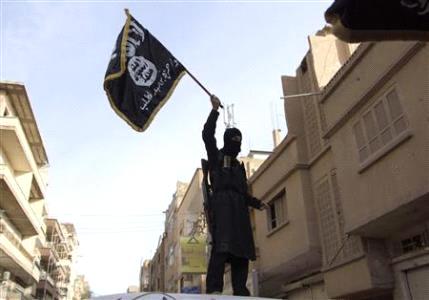Ammon News - LONDON (Reuters) - The conflict in Syria has brought Al-Qaeda fighters closer to Europe and in greater numbers than ever before, profoundly changing the nature of the terrorism threat, Britain’s top security official said on Wednesday.
Hundreds and possibly thousands of al Qaeda-linked people had been drawn to the two-year-old uprising against Syrian President Bashar al-Assad, said Charles Farr, Director General of Britain’s Office for Security and Counter-Terrorism.
“Syria is a very profound game-changer,” Farr told a security conference in London. “The blunt truth is there are more people associated with AQ (Al-Qaeda) and AQ-associated organizations now operating in Syria than there ever have been before that close to Europe.
“They are operating at an intensity which is unparalleled since the events in Iraq in 2005/2006, in other words the peak of the Iraqi terrorist threat. They are much closer to us, in much greater numbers, and fighting with an intensity we have not seen before.”
He later told Reuters hundreds and maybe thousands of people were involved, but cautioned that not everyone going to Syria was an extremist, with some seeking to join Western-backed rebels and others linking up with the Al-Qaeda-linked Nusra Front because it was one of the most effective fighting forces.
“Groups in Syria aspire to attack Europe and clearly in this chaotic environment have both the capability and the means to do so using, amongst others, returning foreign fighters who are coming back to Europe,” he told the conference.
He also said the increasingly sectarian nature of the Syrian civil war meant both prominent Sunni and Shi’ite figures were saying that fighting was a religious obligation.
“One of the effects of that is that it draws even more people into the conflict,” Farr said.
“You might not want to go to Syria to fight against the regime but you certainly want to go to Syria if the fight is characterized as a fight between Sunni and Shia.”
He said the Syrian conflict had also drawn in Lebanon’s Shi’ite guerrilla group Hezbollah. Sponsored by Iran and fighting for Assad, Hezbollah was “operating with an openness and an intensity we have not seen before,” Farr said.
